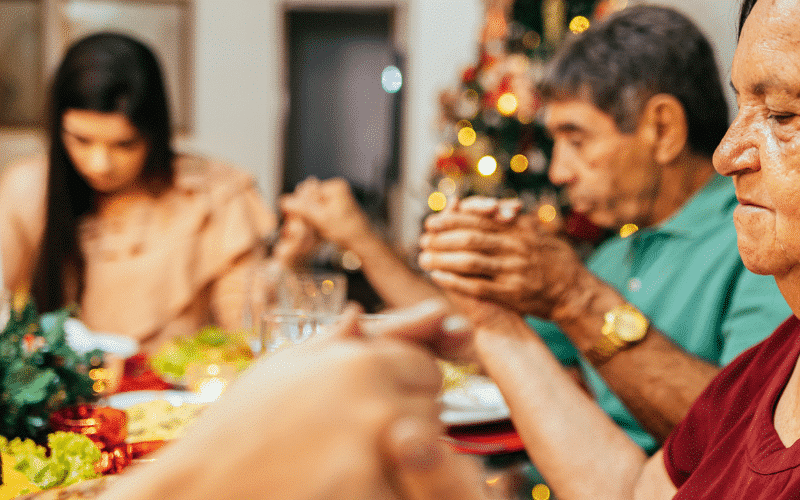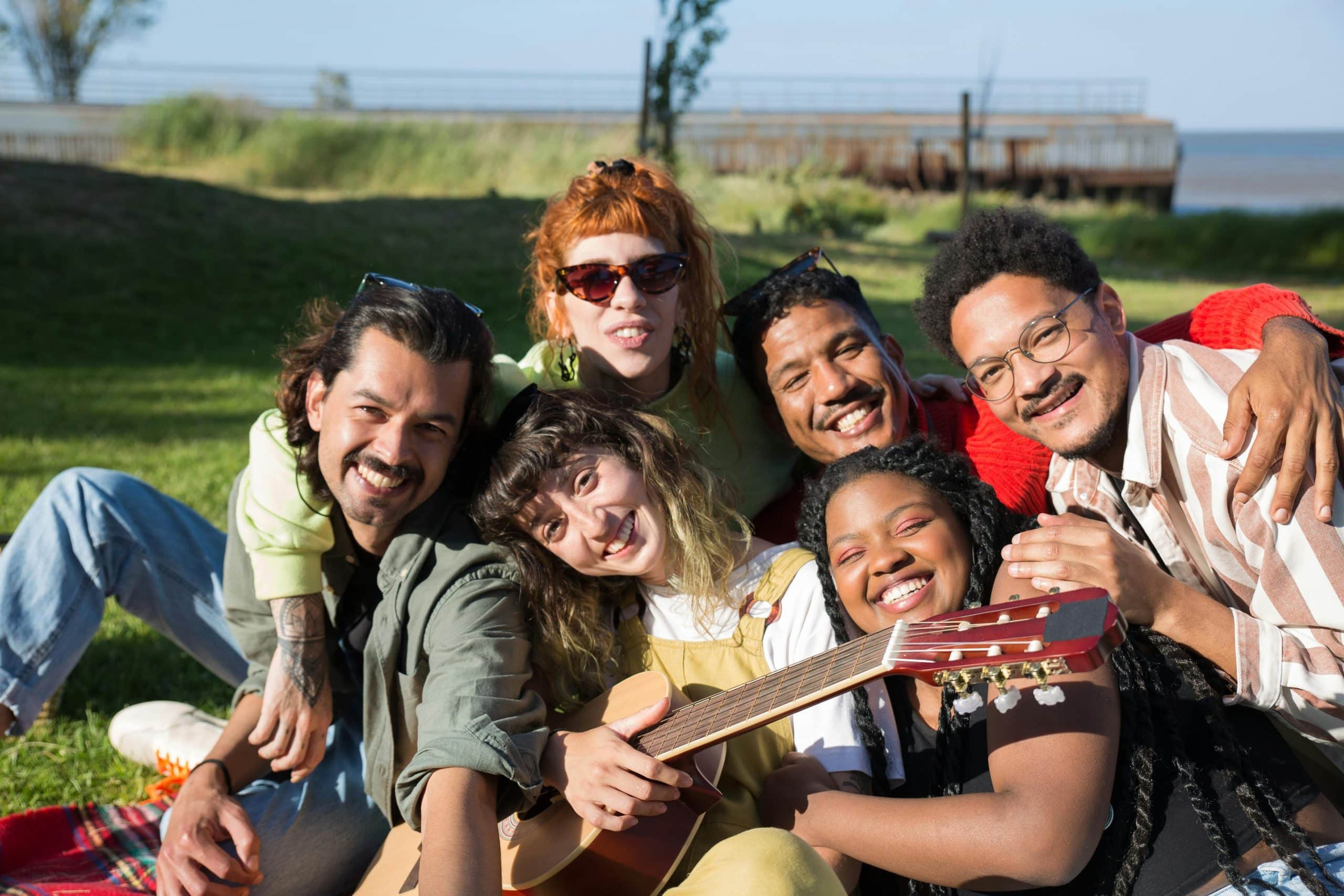Can Thanksgiving be Joyous, but also Honest?
For many, Thanksgiving carries a painful legacy, but Indigenous voices are helping to correct the narrative and correct history.

Thanksgiving is such a weird holiday.
As far as my knowledge goes, not a lot of people in Latin America celebrate it but many are aware of this U.S. holiday. As a native Salvadoran, growing up I remember that I thought it was weird to have a holiday that’s a day to just be thankful. We perceived it differently. Later I realized what Thanksgiving actually commemorated: a day to celebrate, but to celebrate how European colonizers had taken advantage of Native Americans.
However, the concept of Thanksgiving continues to evolve and it’s leaning less on the false narrative of shared mutual support between Native Americans and Pilgrims, and more as a chance to have time off and spend it with your loved ones.
This means that critical questions about the day continue. Should Thanksgiving be celebrated? How do we celebrate it respectfully? Should it even be called Thanksgiving anymore? And what does this mean for the U.S. Latinx community that has so many indigenous roots?
Being thankful for our blessings

The Latinx community is diverse. For some people, Thanksgiving is a perfect day to be thankful for all the blessings they have in their lives. Being a community that has often endured many hardships, being mindful of all the good things in their lives feels very necessary.
This year especially, being thankful and gathering with loved ones feels even more important and meaningful due to COVID-19 and its harsh impact on our lives.
Friendsgiving and Lots of Food

A long weekend? Tons of food? Sounds like an opportunity to gather around with your loved ones and friends to eat delicious traditional foods like tamales, panes con pavo, pozole, tres leches, or not traditional food – the point is the gathering and the eating.
Food is significant in our culture, so having a day to make a big deal out of it, is most definitely a good reason to gather ‘round. Any time people join and cook dishes together it adds warmth and love to a cold season.
A part of assimilating

For many newly arrived Latinos in the U.S., Thanksgiving is a holiday that provides an opportunity to take part in a new culture. They might not know the true origins of the holiday, but it will definitely be celebrated because that’s what’s traditionally done.
When first arriving in a new country, it’s expected for you to fit in as quickly as possible. So it makes sense to adapt to their celebrations without hesitation. Thanksgiving is another rule to follow, and it’s easier to do so when it often comes in the form of a long weekend to spend time with your loved ones or with yourself.
Facing the real truth

The myth of Thanksgiving covers up the bloody American past that’s filled with atrocious acts against Indigenous people, the Wampanoags, specifically, so the shock settles in as soon as the myth begins to be dismantled. How can we celebrate such an atrocious moment in history?
Pretending nothing happened doesn’t cut it. Many indigenous people take this day to mourn those lost and reflect on what was suffered. Part of being grateful for a bounty of food and loving company should also include being grateful to those who involuntarily sacrificed everything in order for this holiday to even exist.
So where’s the talk now?

Indigenous people point out how necessary it is to start conversations about what happened to them on these dates. Organizations like the United American Indians of New England use this day to make a mourning day to acknowledge the hard truth. Some schools are recently beginning to address the falsehoods of Thanksgiving and working with young people on how to retell the correct history.
Understanding the nuances of the day can help heal this very broken nation and being mindful of how you can help tell accurate history can start moving justice forward. Telling the truth will ultimately reverberate across the globe, not just in the U.S.



